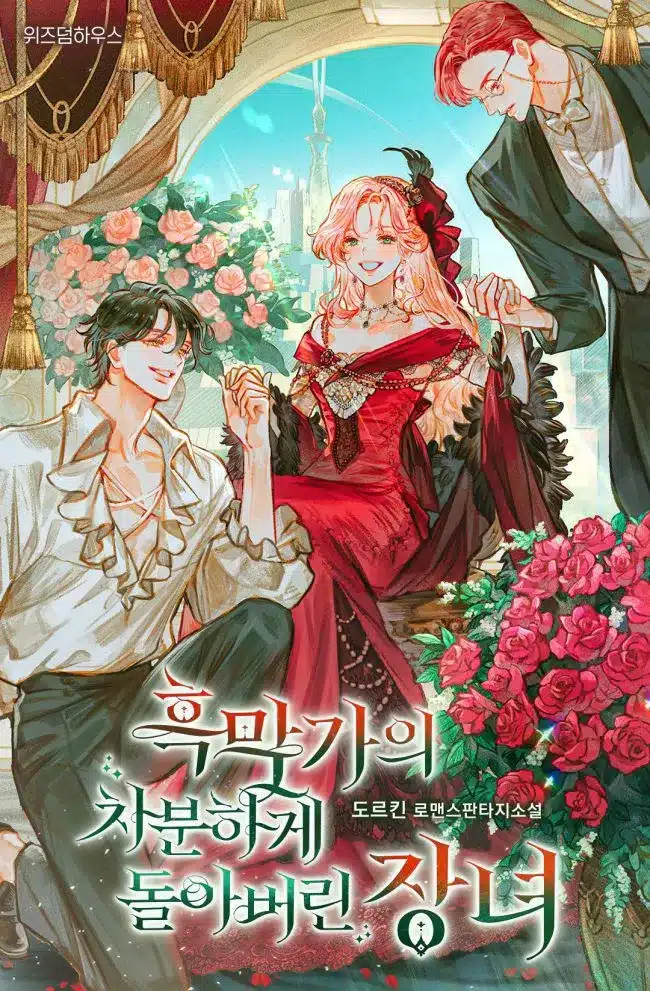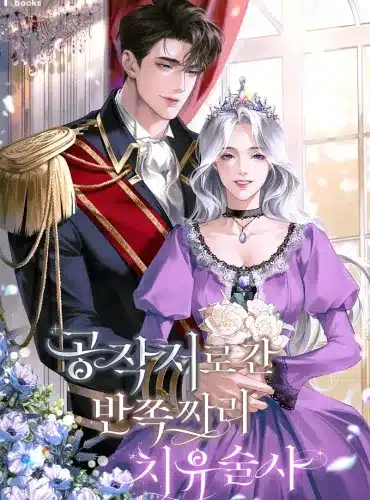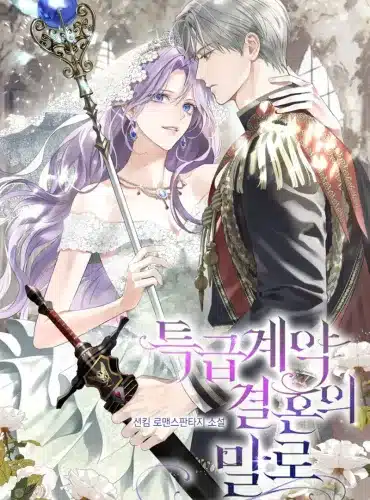Chapter 11:
The Tyrant
In the dimly lit royal chamber, illuminated by the flickering light of oil lamps, the silhouette of a man in white silk moved gracefully.
A man wearing a demon mask danced slowly to the soft strains of a gayageum, his movements imbued with an indescribable majesty.
Unconventional.
That was the word often used by court officials to describe the young king, Yeonsangun, who ascended the throne at the age of twenty.
No other phrase captured him quite as well.
Unlike his father, the so-called “sage king” who compiled the Gyeongguk Daejeon, Joseon’s constitution, Yeonsangun was of an entirely different temperament.
“How could such a rogue come from that father?”
It was said that on the day of Yeonsangun’s coronation, the Grand Queen Dowager let out a sigh of despair.
The rogue king’s actions were unrestrained.
Skipping the Gyeongyeon—the scholarly discussions of Confucian classics between the king and his vassals—to indulge in drinking, music, and feasts was commonplace.
On the rare occasions he attended, he once brought a hunting falcon and dog, leaving the entire assembly dumbfounded.
His behavior didn’t stop at merely raising eyebrows.
His stance on the Confucian principle of the Cheonin Gam-eungnon (Theory of Heaven-Human Correspondence) was equally unorthodox.
“Your Majesty, Heaven and humanity are deeply connected. When the harmony of yin and yang in human affairs is disrupted, Heaven sends warnings,” the court officials would argue.
According to their logic, all calamities in the kingdom ultimately stemmed from the king’s moral failings.
Thus, during times of drought or flood, the king would lead by example, reducing the number of dishes at his table in an act called gamseon (reduced meal) or, in severe cases, forgoing meals entirely in cheolseon (withdrawn meal).
But Yeonsangun was the first and last king to utterly disregard these traditions.
“How can a cold spring be the fault of the king?” he retorted nonchalantly to a petition for gamseon during a spring drought.
“Look to the histories! Even under sage kings, there are famines, and under tyrants, there are bountiful harvests. The way of Heaven is inherently without reason.”
Moreover, Yeonsangun revolutionized the concept of the royal table itself.
Originally, the tributes served at the sura were a gauge of the kingdom’s agricultural prosperity, allowing the king to assess the harvests of the provinces at a glance.
But Yeonsangun twisted this into a pursuit of extreme gastronomic indulgence, gathering the finest ingredients for his sole enjoyment.
In an era where Confucian frugality was demanded even of kings, Yeonsangun’s relentless pursuit of luxury and pleasure made him an unprecedented heretic in Joseon’s history.
The gayageum’s tempo quickened.
The masked man’s movements grew more fervent, his white silk robes fluttering like flower petals in a monsoon rain.
“The custom of insulting the king must be reformed,” he declared.
Yeonsangun was not merely a childish rogue.
The Muo Sahwa (Massacre of 1498), a bloody purge that swept through the court years ago, was proof.
When irreverent documents defaming the royal family were found in the historical records compiled by the sarim (Confucian scholar) faction, Yeonsangun showed no mercy.
Countless heads rolled in the aftermath.
Even a deceased sarim leader was exhumed, his corpse dismembered in an act called bugwanchamsi (desecration of the grave).
That was likely when it began.
When the court started whispering of the king as a tyrant, trembling in fear.
Ding—
The gayageum string snapped, and the music halted.
The masked man’s movements ceased as well.
As he slowly removed the demon mask, Yeonsangun’s pale, striking features were revealed in the lamplight, beads of sweat glistening on his forehead from his vigorous dance.
“Your Majesty, the seoksura is ready,” came the voice of a Jimil Sanggung (palace matron) from outside the chamber.
“Let it be brought in.”
“Your Majesty, may I serve you tonight?” Jang Nok-su, who had been playing the gayageum in a corner, spoke in a soft, lilting voice.
But Yeonsangun shook his head slowly.
“I will dine alone tonight.”
“But, Your Majesty, to inspect the meal…”
“You must be weary from personally selecting the new maid today, Sukyong. Retire to your quarters.”
His tone was firmer than usual.
Jang Nok-su, reading his expression, did not press further.
“…Then I shall take my leave.”
…
The brief moment waiting outside the chamber with the sura felt like an eternity to Ji-yeong.
As the sliding doors opened, Jang Nok-su and her entourage of heungcheong (royal entertainers) poured out.
In the fleeting second their eyes met, Ji-yeong felt a subtle, chilling hostility emanating from Jang Nok-su.
“The seoksura will be brought in,” the Jimil Sanggung announced, signaling Ji-yeong with a glance to enter.
As if triggered by a sensor, the chamber’s sliding doors opened with precise coordination.
In the center of the chamber, seated on a golden mat in white silk robes, was a man.
That man… Yeonsangun…
Ji-yeong swallowed hard, her nerves taut.
If she followed the instructions from Im Sung-jae and the Jejo Sanggung (chief palace matron), she should be fine.
“Y-Your Majesty, I present the evening sura.”
With the other maids, Ji-yeong set down the daewonban, sowonban, and chaeksangban.
“Only the new girl stays. The rest, leave,” Yeonsangun commanded.
“Yes, Your Majesty.”
At his words, the other maids retreated backward, vanishing outside the chamber.
In the dim space lit by a few oil lamps, only two remained.
To think I’m face-to-face with Yeonsangun, whom I only read about in history books…
She’d seen him briefly in the suragan, but she hadn’t dared lift her head to look at him then.
As she cautiously raised her gaze, her heart sank.
Yeonsangun was staring at her intently.
What… what’s with him? Why is he so handsome?
Absurdly, that was her first thought.
Historical records did describe Yeonsangun as tall, pale-skinned, with delicate, almost feminine features inherited from his beautiful mother.
But to think he’d have such a strikingly modern, actor-like appearance!
Ji-yeong struggled to banish the thought.
Get a grip! This guy’s a psychopath with a ruined personality. The worst tyrant in Korean history!
“What are you doing?” Yeonsangun’s voice snapped her back to reality.
“Shouldn’t you explain the dishes on the sura?”
His gaze was so intense it felt oppressive.
“Oh, yes, Your Majesty. So, um…”
Ji-yeong cleared her throat, trying to hide her nerves.
Tonight’s sura was designed to captivate the king’s heart, requiring nothing less than perfection.
She had prepared a feast rooted in the haute cuisine of Versailles, the pinnacle of French culinary art.
Haute cuisine, established during the era of the gourmet Sun King, Louis XIV, was the foundation of French cuisine’s global dominance.
Surely, Yeonsangun, Joseon’s greatest epicure, would recognize its brilliance.
Haute cuisine in Louis XIV’s time was served as a single spread, not courses, much like the sura.
Even without courses, the dishes followed a specific order.
Ji-yeong pointed to the hors d’oeuvre to whet the appetite.
“Here, to stimulate your palate, we have thinly sliced raw beef with assorted pickles and pear.”
The beef tartare, akin to French steak tartare, was sliced in an Italian carpaccio style, paired with tangy pickles and sweet pear to awaken the taste buds.
Next was the potage (thick soup).
“A rich porridge made with mushrooms and vegetables, thickened with cow’s milk.”
In an era without cream soups, this adaptation of tarakjuk (milk porridge) was a Joseon-style potage.
Then came the fish (poisson) and poultry (volaille).
“Silver pomfret grilled with an antiboise seasoning, and native black-bone chicken prepared using a foreign technique called confit.”
“A-Anti… boise? Confit…?” Yeonsangun repeated the unfamiliar terms, intrigued.
Silver pomfret and black-bone chicken were among his favorites, as noted in Im Sung-jae’s memo.
Seeing familiar ingredients transformed by unheard-of methods, even Yeonsangun, accustomed to every delicacy, looked surprised.
But the true surprise was yet to come.
“And this is a dish coveted by the finest gourmets of the West!”
Ji-yeong lifted a silk cloth adorned with a phoenix design.
“Goose liver, foie gras.”
A whole, lightly cooked goose liver sat on the tray.
Unlike the common modern paté or terrine, this was true foie gras, cooked whole, a delicacy reserved for the finest cuisine.
“F-Foie… gras… A curious name.”
Yeonsangun’s mouth seemed to water already.
But no matter how exquisite foie gras is, it can’t be the main dish of a banquet.
Seeing Yeonsangun transfixed by the sura, Ji-yeong allowed herself a triumphant smile.
The highlight of the feast was about to come.
The centerpiece, the entrée (main course), was next.
“And this is the heart of tonight’s sura.”
The crown of haute cuisine: viande (meat).
“Deer tongue, nokseol, lightly cooked at low heat with a Madeira sauce.”
“Ohh…”
Deer tongue, one of the eight rare delicacies (paljin), was prepared using a French pork tongue recipe, simmered with rice wine instead of white wine for a Madeira-style sauce.
But Ji-yeong’s choice of deer tongue wasn’t just for its flavor.
The king.
Since ancient times, deer symbolized royalty.
The struggle for the throne was called chukrok (chasing the deer) for that reason.
Thus, eating a deer—especially one hunted by the king himself—was a potent symbol of royal authority.
This aligned with the spirit of haute cuisine’s grand couvert, the “great table” symbolizing royal power.
The Palace of Versailles, where such power-laden feasts occurred, was originally Louis XIV’s hunting lodge.
Intense ambition, heightened ego, and exquisitely sensitive taste! This sura will perfectly satisfy all of Yeonsangun’s desires!
A sura transcending the boundaries of era and nation.
Yeonsangun’s face, gazing at Ji-yeong, began to show growing intrigue.
“Taste it.”
“…Pardon?”
“I’ve heard your explanation. Now taste it.”
“Oh, understood, Your Majesty.”
Ji-yeong cut a piece of the deer tongue and placed it in her mouth.
The tender, perfectly cooked meat released a unique flavor that filled her palate.
“Now give me a piece.”
“Pardon…?”
Ji-yeong froze, startled by Yeonsangun’s words.
Did serving the meal include feeding the king directly?
His sharp, pale eyes watched her intently.
He was serious.
“Here… it is, Your Majesty.”
With trembling hands, Ji-yeong picked up a piece of deer tongue and brought it to his lips.
The subtle motion of Yeonsangun accepting the food traveled through the chopsticks to her fingertips.
It felt like a childhood memory of nervously feeding a beast at the zoo.
An unsettling, thrilling moment.
Suddenly, Yeonsangun grabbed her wrist.
“Eek…!”
A scream nearly escaped Ji-yeong’s lips, but his unexpected words stopped her.
“…You’re the one.”
…
Author’s Note
According to records in the annals and unofficial histories, Yeonsangun was tall and slender, with pale skin, reddish eyes, and delicate, feminine features inherited from his beautiful mother.



















